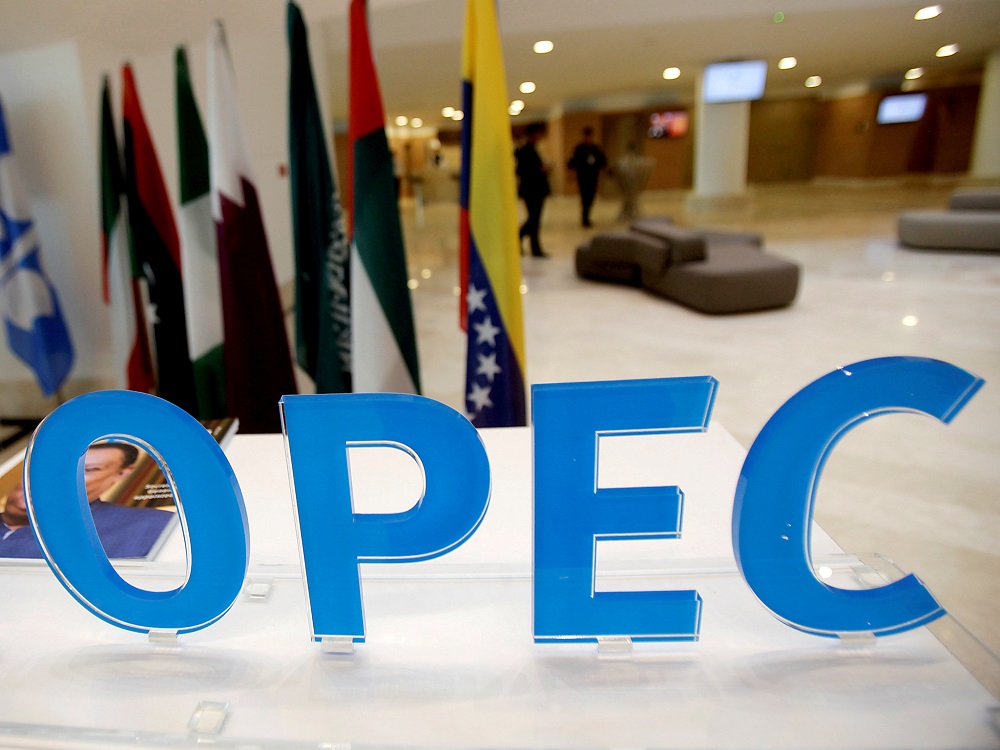London – The next meeting of a ministerial committee of OPEC and non-OPEC has been proposed for September 22 to discuss the countries’ production pact, according to two informed sources.
The sources added that they are waiting for the ministers’ approval for the meeting, especially that they agreed during their last meeting in July to hold it in September without specifying the date or place.
The committee includes Kuwait, Algeria, and Venezuela from OPEC, and Russia and Oman from outside of the organization.
The Joint Technical Committee (JTC) is expected to convene in Vienna on September 20, according to the sources.
Kuwait’s Oil Minister Essam al-Marzouq told Kuwait television on Monday that OPEC will discuss in November whether to extend or end production cuts.
“At our next meeting …the most important items will concern the fate of the agreement to extend or terminate the production cut,” he said in an interview.
He said oil inventories in recent weeks fell more than expected and that one-week forecasts were two million barrels a day, down from 6.5 million.
Meanwhile, oil prices rose on Tuesday, lifted by indications that supply is gradually tightening, especially in the United States.
Brent crude oil was up 40 cents at $52.06 a barrel and US light crude was 35 cents higher at $47.72.
Market analyst at futures brokerage Forex.com Fawad Razaqzada stated that US crude oil stocks have been falling consistently in recent weeks.
“If the downtrend in oil inventories is maintained, then a bullish case can be made for oil, especially given the ongoing supply restrictions from OPEC and Russia,” Razaqzada said.
US crude production has broken through 9.5 million bpd, its highest since July 2015, but analysts say growth may slow as US energy firms cut the number of rigs drilling for new oil.
Meanwhile, Libya’s Sharara oil field was gradually restarting on Tuesday after repeated disruptions caused production shutdowns, two sources at the field said.
Details of the second reported stoppage at the field on Tuesday were unclear, but the official said it was due to action by a different group to the one on Saturday that caused a closure at a valve on a pipeline leading from Sharara to Zawiya.
Earlier in the day, the National Oil Corporation (NOC) had announced that a three-day pipeline blockade had ended and force majeure had been lifted on loadings of Sharara crude at Zawiya terminal, Reuters reported.
“No group has claimed responsibility for the valve closure, and no demands were made, but NOC engineers dispatched to open the valve found a gearbox had been stolen,” the statement said.
“This gearbox was removed by criminals for one purpose only, and that is to blockade the line in future,” NOC Chairman Mustafa Sanalla was quoted as saying.
NOC said the closure that lasted from Saturday until Tuesday morning had occurred at valve 17 on the pipeline to Zawiya.
But the NOC removed its statement and an oil source said there was a further block on production at the field.
The shutdown was due to action by a different group to the one that caused a closure at valve 17 leading from Sharara to Zawiya terminal on Saturday, the official said.
In related news, the National Iranian Gas Company (NIGC) said Iran is currently exporting 42 million cubic meters of natural gas per day.
NIGC Managing Director Hamid Reza Araqi stated that exports rose to the number by starting of gas exports to neighboring Iraq.
He said export of natural gas to neighboring countries will be rising in the future.
“Developing export infrastructure by laying out pipelines and construction of pressure boosting stations are seriously being considered by NIGC in order to increase its share in the gas market in the region,” Araqi added.
SOCAR, state-controlled energy firm of Azerbaijan, is looking into increasing production of natural gas in coming years, the company’s head Rovnag Abdullayev told Reuters, in an effort to reverse a decline in output.
Abdullayev added that Azerbaijan, which is not a member of OPEC, remains committed to its obligations under a global deal among OPEC and some non-OPEC nations to cut oil production.
“We are still committed to our obligations. Our oil production has decreased slightly, but revenues from oil sales have increased thanks to a rise in the oil price,” he said.
He explained that Azerbaijan’s key goal is to avoid selling oil cheaply. So, even though oil output in Azerbaijan has been slightly reduced revenues have grown, which shows the country is on the right track.
